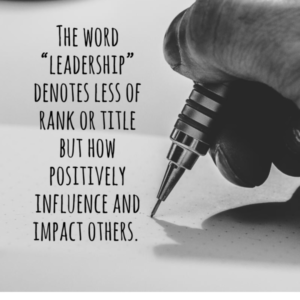Trust Must Be Earned – An Exercise in Leadership
Trust is a simple concept. You say one thing to me by your words or actions, and I have faith that I can depend on what you say. The concept of trust may be simple. however, the actions that earn trust and the willingness to have faith in another are a different story.
I recently created a new half-day workshop titled, “Everyday Leadership”***. The word “leadership” denotes less of rank or title but how we positively influence and impact others. The word “every day” may seem obvious, but it’s to stress the importance of evoking leadership that isn’t every now and then, but every day.
The Core of Relationships is Trust
Think about it. All relationships that work well rely on trust. Whether friendships, intimate partner relationships, colleague and co-worker relationships, or even those between a workshop facilitator and their audience of participants—me, in this case.
This particular day, I was delivering our “Everyday Leadership”*** program to a large group of employees.
I had brought along a couple of bags full of my favorite leadership books. I laid them out on a table at the front of the room, so that when I reference an idea, I can point out the book and author who developed it.
Suffice to say, I love books. So, I like to ask whether my leadership participants share in my passion.
“How many people here today would say they are a reader?” I asked that morning.
In a room of 70+ plus employees, not a single hand was raised.
I did notice, however, that several people began looking around the room to see who might raise their hand.
I realized that although my client had shared some of my professional background in my introduction to the group, there was still much that the students didn’t know about me. They didn’t feel comfortable enough to open up yet.
That is often the issue. They did not trust me yet. When someone new comes into an already established group, the group is wary of that person. It’s a natural defense mechanism.
Great “Reads” On Trust
And I have my plethora of books to prove such theories.
Patrick Lencioni’s fabulous book, The Five Dysfunctions of a Team shares how the single largest issue in a non-functioning team is an absence of trust— particularly with the person in charge.
Brene Brown’s powerful work, Dare to Lead, reminds us that leadership is not about titles, status, and wielding power. It’s about being human and vulnerable. Brown claims that a leader is anyone who takes responsibility for recognizing the potential in people. Leaders gave the courage to develop that potential.
Inside David Horsager’s authoritative tome, The Trust Edge, are the factors that make up the 8 Pillars of Trust: clarity, compassion, character, competency, commitment, connection, contribution, and consistency.
The act of exposing yourself as being human and demonstrating that you’re serious about being of service to the group (rather than the other way around), builds trust.
How to Remove Barriers
This will begin the process of removing the barriers that exist between the stranger who has arrived and the group who has yet to roll out the welcome carpet. And they never will, if they never trust the new person.
To build trust with my new group of participants, I began by sharing who I was:
- I grew up in a small town on the south coast of England.
- An older boy bullied me constantly in high school.
- I “ran away” to become a police officer in London to learn how to deal with people who didn’t treat me nicely.
- On Day One of training, I was taught that it was not handcuffs that I needed to use in dealing with people but handshakes.
- How I was taught that the secret to getting along with others is to: Listen to people well – Talk to people well and – Treat people well
(Side note: a not-so-secret weapon that we can all deploy in building trust with others is to listen, really listen, to them. The more you listen, the more you learn…)
Building Trust When You are New
How did I build trust with a group of strangers? I remained open, honest, and vulnerable.
I shared some of myself with them and then listened to them share. By asking them questions about themselves, and finding our common interests and values, we connected.
At the morning coffee break, I already noticed a change in my participants. Several employees walked over to the table of books at the front of the room:
- They started leafing through some of the titles.
- A few of them even took photographs of the table display.
- Several of them picked up certain books and confirmed that they had read this one or that one.
- Many of them asked me for my recommendations about which was the “best” book to read.
As we concluded every single person in the room wanted the now treasured list, Phil’s Library of Books.
I could tell that they felt more comfortable with me, trusted my opinions a little bit more.
Perhaps I have even earned some of your trust by sharing bits and pieces of my life in these blogs.
Trust is incremental. If I can prove that I can be trusted on the small things, people will start to trust me on the bigger things as well.
But remember:
Trust cannot be demanded.
Trust must be earned.
*** Everyday Leadership Workshop – The workshop is designed to provide participants with concepts, ideas, and tools they can use to develop and enhance their working relationship with colleagues, direct reports, as well as supervisors and managers.






